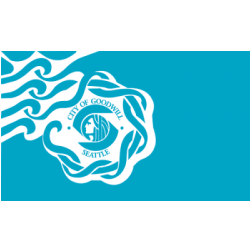
The city of Seattle has the largest population of nurses in the state of Washington. It is also home to several of the state’s most prestigious nursing schools, including the University of Washington, Seattle University, Pacific Lutheran University, and Seattle Pacific University.
The Seattle metropolitan area’s twenty-plus nursing schools may be grouped into two categories. For advanced candidates, several universities offer a bachelor of science in nursing (BSN) degree. The four universities cited above also offer a full suite of doctoral nursing programs. These baccalaureate and graduate programs prepare registered nurses (RNs) to assume leadership roles in the nursing profession. Indeed, many administrative and managerial roles require at least a BSN degree.
Alternatively, entry-level candidates may opt for the Seattle area’s network of a dozen public community colleges, including North Seattle College, South Seattle College, Everett Community College, and Lake Washington Institute of Technology. Each school offers an associate degree in nursing (ADN) for aspiring RNs as well as a brief certificate program for aspiring certified nursing assistants (CNAs). Graduates can expect ample employment opportunities at local healthcare providers like University of Washington Medical Center, Virginia Mason Franciscan Health, EvergreenHealth, and Harborview Medical Center.
The Seattle metropolitan area is home to 9,600 nursing assistants, 2,800 licensed practical nurses, and over 22,000 registered nurses. Seattle’s nurses are among the best-paid in the state. Local CNAs earn $30,200 per year on average, while LPNs receive $53,400 in annual pay. Seattle’s RNs earn an impressive $82,000 per year, while those with a BSN or graduate degree frequently receive well over $100,000 in annual pay.
2024 NURSING SCHOOL RANKINGS
For our 2024 rankings, the research team at Nursing Schools Almanac collected data on nearly 3,000 nursing schools and campuses throughout the United States. We evaluated each school on three dimensions:
- The institution’s academic prestige and perceived value
- The breadth and depth of nursing programs offered
- Student success, particularly on the NCLEX licensure examination
We then combined these assessments into an overall score and ranked the schools accordingly. For a detailed description of our assessment methodology and dimension weights, please see here.
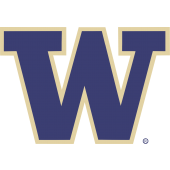
#1: University of Washington
The University of Washington School of Nursing has been a top-rated nursing school by U.S. News & World Report for twenty years. UW offers the full breadth of nursing degrees: traditional and accelerated BSN programs, an MS in clinical informatics and patient-centered technologies, a PhD in nursing science, and 11 DNP tracks. Students can also pursue graduate certificates in areas ranging from palliative care to nurse-midwifery. UW’s graduating BSN class of 130-150 students annually has passed the NCLEX exam at a strong 93% first-try rate over the past decade.
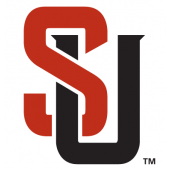
#2: Seattle University
The Seattle University College of Nursing offers a unique nursing curriculum that combines local and international nursing education. Students may take single academic courses abroad or enroll in a short- or long-term study abroad experience. Locations run the gamut from South America to Africa to Australia. The college offers a four-year BSN program as well as traditional and non-nurse immersion pathways to a DNP degree. Prelicensure students perform well on the NCLEX exam: over the past decade, 87% of BSN students and 94% of graduate immersion students passed the exam on their first attempt. Graduate students can choose from several nurse practitioner specializations, nurse midwifery, or advanced community public health nursing.
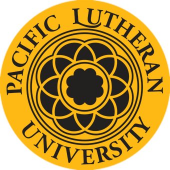
#3: Pacific Lutheran University
The School of Nursing at Pacific Lutheran University offers a top-tier MSN program with several entry points and specializations. Entry points include the traditional post-BSN program, an RN-to-MSN pathway for nurses with a bachelor’s degree in another field, and an entry-level program for non-nurses. Students can specialize as either an advanced generalist or a clinical nurse leader. The entry-level MSN program is select, admitting just 20-30 candidates each year, and its students have maintained an exceptional 94% NCLEX exam pass rate over the past decade. The School of Nursing also offers two BSN pathways – traditional and LPN bridge – as well as a DNP program that prepares aspiring family nurse practitioners and psychiatric-mental health nurse practitioners. Approximately 80 BSN graduates annually have averaged a 93% NCLEX pass rate over the past decade.
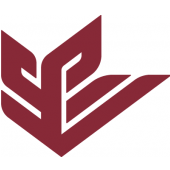
#4: Seattle Pacific University
Seattle Pacific University’s School of Health Sciences has educated thousands of nursing graduates over the past eighty years. SPU students have access to clinical rotations at premier local institutions like Harborview Medical Center and Seattle Children’s Hospital. They can also engage in study abroad opportunities; past destinations have included Guatemala, Ireland, and Vietnam. The School of Health Sciences offers a traditional upper-division nursing major, an MSN program, and a recently launched DNP program. Undergraduates have enjoyed a solid NCLEX pass rate of 88% over the past decade. MSN students can choose from two specialty pathways (clinical leadership in practice, nurse educator), and DNP students can choose from three specialty pathways (clinical nurse specialist, adult-gerontology nurse practitioner, family nurse practitioner).
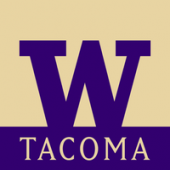
#5: University of Washington Tacoma
UW Tacoma has two programs for aspiring nurses: an RN-to-BSN offering and an MSN degree. The RN-to-BSN curriculum supports registered nurses in their professional development with a broad range of relevant coursework. Popular courses include Clinical Nursing Phenomena; Diversity, Health, & Inequities; Ethical Issues in Healthcare; and Genetics, Genomics, & Nursing Practice. The MSN program has two curriculum options: leader in healthcare delivery and nurse educator. This 47-credit-hour program may be completed in just seven quarters, which includes two quarters of fieldwork.
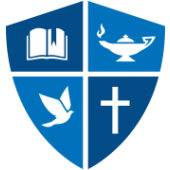
#6: Northwest University
The Mark and Huldah Buntain School of Nursing offers a unique program that sends every nursing major to another country for a month of experiential learning. Recent classes have traveled to India, Kazakhstan, Taiwan, and several countries in Africa. Each undergraduate cohort of 48 students is instructed with top-notch equipment in a robust network of local hospitals such as Providence, Swedish, Seattle Children’s, Evergreen, and Overlake. Over the past decade, these BSN students have achieved an excellent 91% first-time pass rate on the NCLEX licensure exam. In addition to the traditional undergraduate degree, Northwest University also offers online RN-to-BSN and MSN programs.

#7: University of Washington Bothell
The School of Nursing & Health Studies at the University of Washington Bothell offers both BSN and master of nursing (MN) programs. The BSN degree has two tracks: a traditional RN-to-BSN program for transfer students who have already completed an ADN and hold an active RN license, and a first-year entry RN-to-BSN program for university freshman students. This dual-enrollment program between UW Bothell and the nursing program at Everett Community College allows students to graduate with an ADN from EvCC and a BSN from UW Bothell. Both BSN tracks have hybrid and in-person options. The university’s MN program is offered in a hybrid format, meeting twice per month on Fridays with self-directed online activities during the remaining weeks.

#8: Bellevue College
Bellevue College serves nearly 30,000 students across more than 200 bachelor’s degree, associate degree, and certificate programs. The school offers three nursing pathways: a nursing assistant certificate, an associate degree in nursing, and an RN-to-BSN degree completion program. The ADN curriculum prepares students for entry-level registered nursing practice, while the RN-to-BSN curriculum builds upon the academic foundations and experience of the ADN-prepared nurse. Bellevue College graduates 50-75 students annually from its ADN program, with an excellent 93% NCLEX pass rate over the past decade.
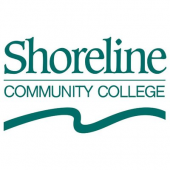
#9: Shoreline Community College
Designed in consultation with industry professionals, Shoreline Community College’s nursing curriculum is widely recognized as one of the state’s best. Students may earn an associate of applied science-transfer (AAS-T) degree over six or ten quarters. The six-quarter program features a traditional college schedule, with flexible start dates in the fall, winter, or spring. The ten-quarter program offers a lower course load for students with significant time constraints; it admits a new fall cohort once every two years. Shoreline Community College graduates 80-100 nursing students annually, with an exceptional 93% first-time NCLEX pass rate over the past decade. Graduates have a number of BSN completion options in the surrounding metropolitan area, including Olympic College and the University of Washington Bothell.
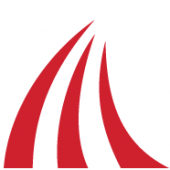
#10: Everett Community College
Everett Community College’s nursing program has prepared students for licensure since 1941. The program awards an associate of applied science-transfer (AAS-T) degree and prepares graduates for the NCLEX-RN national licensure examination. Most AAS-T graduates will eventually continue their studies and earn a baccalaureate or higher degree in nursing. Indeed, thanks to the college’s partnership with University of Washington Bothell, students can pursue a BSN degree right on the EvCC campus. The AAS-T program typically graduates between 100 and 125 students annually. These graduates have enjoyed excellent outcomes. Over the past decade, nursing students have averaged an impressive 94% first-time NCLEX pass rate. The nursing program also boasts a 99% completion rate and a 98% employment rate within nine months of graduation.
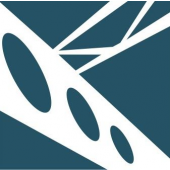
#11: Lake Washington Institute of Technology
Lake Washington Institute of Technology is the only public institute of technology in the state. The school offers nearly 150 degrees and certificates in more than forty areas of study. Aspiring nurses can pursue either a nursing assistant certificate of completion or an associated of applied science-transfer degree. CNA students are prepared to sit for the National Nurse Aide Assessment Program, while AAS-T students are prepared to sit for the National Council Licensure Examination. The AAS-T program chooses students on a competitive basis called Selective Admission, with unique qualification requirements and application deadlines. These students have enjoyed excellent outcomes, including a 92% program completion rate and a 91% NCLEX pass rate over the past decade.
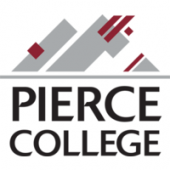
#12: Pierce College
Pierce College serves more than 20,000 students across eighty degree and certificate programs. One of the school’s most popular programs is nursing. Pierce College offers an associate degree in nursing with a traditional two-year curriculum and an LPN-to-RN transition pathway. The college also conducts a nursing assistant certificate with both a generic course map and an Integrated Basic Education and Skills Training (IBEST) course map. Historically, the ADN program has graduated approximately thirty students annually. Three of the past five graduating classes have scored a perfect 100% pass rate on the NCLEX-RN licensure examination. ADN graduates can transition seamlessly into the BSN program at either the University of Washington Tacoma or Saint Martin’s University. Pierce College also holds articulation agreements with a number of other four-year institutions including Pacific Lutheran University, Seattle Pacific University, and Washington State University.
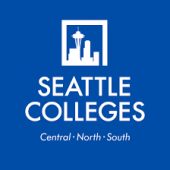
#13: Seattle Colleges
Seattle Colleges provide workforce education, technical training, transfer degree pathways, and career-focused baccalaureate degrees to nearly 50,000 students annually. The colleges’ nursing programs are administered by Seattle Central College but conducted at all three campuses, including North Seattle College and South Seattle College. Aspiring nurses can pursue either an associate degree in nursing or a nursing assistant certificate. The CNA program takes just one quarter to complete. It prepares graduates for entry-level positions in a variety of healthcare settings. The ADN is a traditional two-year curriculum that combines nursing theory, general education, laboratory exercises, and clinical practice. Across the three campuses, Seattle Colleges graduate approximately 80-100 ADN students annually. Over the past decade, these RN candidates have scored an 87% first-time pass rate on the NCLEX licensure examination.
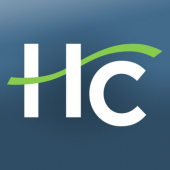
#14: Highline College
Highline College offers both a traditional associate of applied science (AAS) nursing degree and a bridge option that grants advanced placement to licensed practical nurses. Candidates must first complete a nursing assistant certificate program before applying to the AAS program. The traditional curriculum requires two years of fulltime attendance, while the LPN-to-RN bridge program requires one year of study. Students gain hands-on practice through supervised clinical experiences in hospitals, long-term care settings, and community health agencies. Across both pathways, approximately eighty students graduate annually from the AAS program. Over the past decade, these students have averaged an 86% pass rate on the NCLEX licensure exam. The class of 2018 scored a 95% NCLEX pass rate, a 100% program completion rate, and a 100% graduate placement rate.

#15: Edmonds College
Edmonds College enrolls 10,000 students annually across more than 120 associate degree and professional certificate programs. The school offers both a brief nurse assistant certificate and a 21-month practical nursing certificate. The CNA program consists of just five prerequisites, a patient care skill class, and a clinical externship. Graduates are prepared to take the National Nurse Aide Assessment Program examination. The LPN program admits only students who already hold a valid CNA license. The curriculum is conducted on a part-time basis, with one start date each fall quarter. Launched several years ago, the LPN program has typically graduated about twenty students annually. These practical nursing candidates have averaged a 92% first-time pass rate on the NCLEX licensure examination since the program’s inception.
